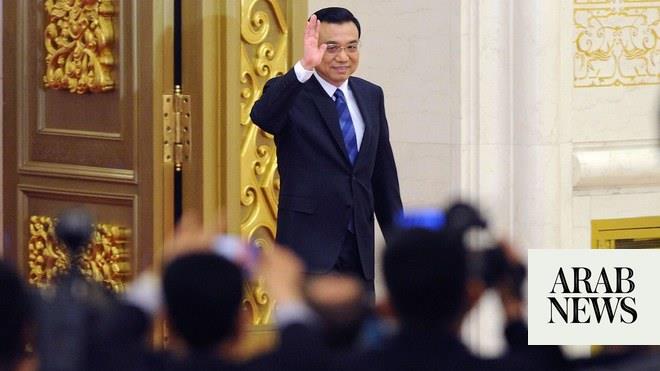
RIYADH: Beijing “firmly supports” Saudi Arabia’s positive role in the Middle East and its contribution to peace and stability in the region, China’s foreign minister said in a wide-ranging interview on the strength of relations between the two countries.
Speaking to Asharq Al-Awsat, the Arabic sister paper of Arab News, Wang Yi praised the Kingdom’s approach to tackling terrorism and extremist ideologies.
He said increased trade and economic cooperation has been “fruitful” and helped each nation move toward the goals set by their ambitious economic plans. In Saudi Arabia, Vision 2030 is a sweeping program to diversify the economy and boost public services, while China’s Belt and Road Initiative aims to develop infrastructure and investments in Europe, Asia and Africa.
Both programs have featured prominently during Crown Prince Mohammed bin Salman’s visit to China, which started on Thursday.
While the visit has been dominated by a series of deals related to investment, China’s political support for the Kingdom comes at a time of crucial strategic importance in the Middle East as Iran continues to extend its influence in conflicts such as Yemen and Syria.
“Saudi Arabia plays an important role in the Middle East, and has made a unique contribution to security, stability and common development in the region,” Wang said.
“China firmly supports Saudi Arabia in upholding its sovereignty, security and stability, in playing a positive and constructive role in the evolving regional landscape, in developing friendship and cooperation with countries in the region, and in making greater contribution to peace, stability and development in the Middle East and the Gulf region.”
Security has featured prominently during the crown prince’s visit and President Xi Jinping urged the two countries to work closer to counter extremism when they met on Friday.
Wang praised Saudi Arabia for developing a set of deradicalization measures that have helped to safeguard both the Kingdom and the region.
“Saudi Arabia intensified its fight against terrorist organizations, including cutting off the flow of funding for terrorism, playing an active part in international cooperation against terrorism and sponsoring the UN Counter-Terrorism Center,” Wang said.
“On deradicalization, Saudi Arabia condemned the extremists’ perversive interpretation of Islamic teachings, encouraged religious tolerance and established multiple counseling and care centers to guide and reeducate those influenced by extremist ideologies.”
He said China is ready to work with Saudi Arabia through policy, intelligence sharing, technology and training to “safeguard our common security.”
The foreign minister said both China and Saudi Arabia are victims of terrorism, and he outlined his country’s struggle against militants based in Xinjiang province in the west.
China blames the East Turkestan Islamic Movement for hundreds of bombings and other attacks in recent decades.
Wang said his country had drawn on the experience of Saudi Arabia and other countries in setting up “vocational education and training centers” to tackle extremism.
“The relevant measures are aimed at countering the influence of extremist terrorist ideologies. They are not targeted at any particular ethnicity or religion,” he said.
Wang also discussed China’s role in helping to resolve the Middle East’s key conflicts. He said China has been a “staunch supporter of the cause of the Palestinian people” and had supported the Arab Peace Initiative presented by Saudi Arabia and endorsed by the Arab League in 2002.
He reiterated his country’s support for a political solution to the Syria conflict and said China’s approach to resolving wars in the region was through “peace and dialogue.”
“As the Middle East continues to see complex changes with rising security challenges, China will step up communication and coordination with Saudi Arabia and other regional countries and together strive for lasting peace, security, prosperity and development in the region,” Wang said.
The crown prince’s visit has already seen several agreements signed to boost cooperation between the two countries, and the minister said this would also feed into improving stability in the region.
The two countries on Friday agreed 12 points of cooperation covering investment in the petro-chemical industry, renewable energy and counter-terrorism. An investment forum the same day reached deals worth $28 billion.
Saudi Aramco also signed an agreement to form a $10 billion joint venture with two Chinese firms to develop a refining and petrochemical complex in Liaoning province.
Wang outlined the increased cooperation in recent years, under which bilateral trade reached more than $63 billion in 2018. He said Saudi Arabia had been China’s largest trading partner in the Middle East and Africa for 18 consecutive years.
“China and Saudi Arabia have achieved fruitful results in practical cooperation as the two countries seek greater complementarity between the Belt and Road Initiative and the Vision 2030 of Saudi Arabia,” he said.
“Given the complex regional and international situation, the visit by the crown prince will go a long way to enhancing strategic mutual trust between the two countries, boosting practical cooperation in all areas and upholding peace and stability in the region.”










